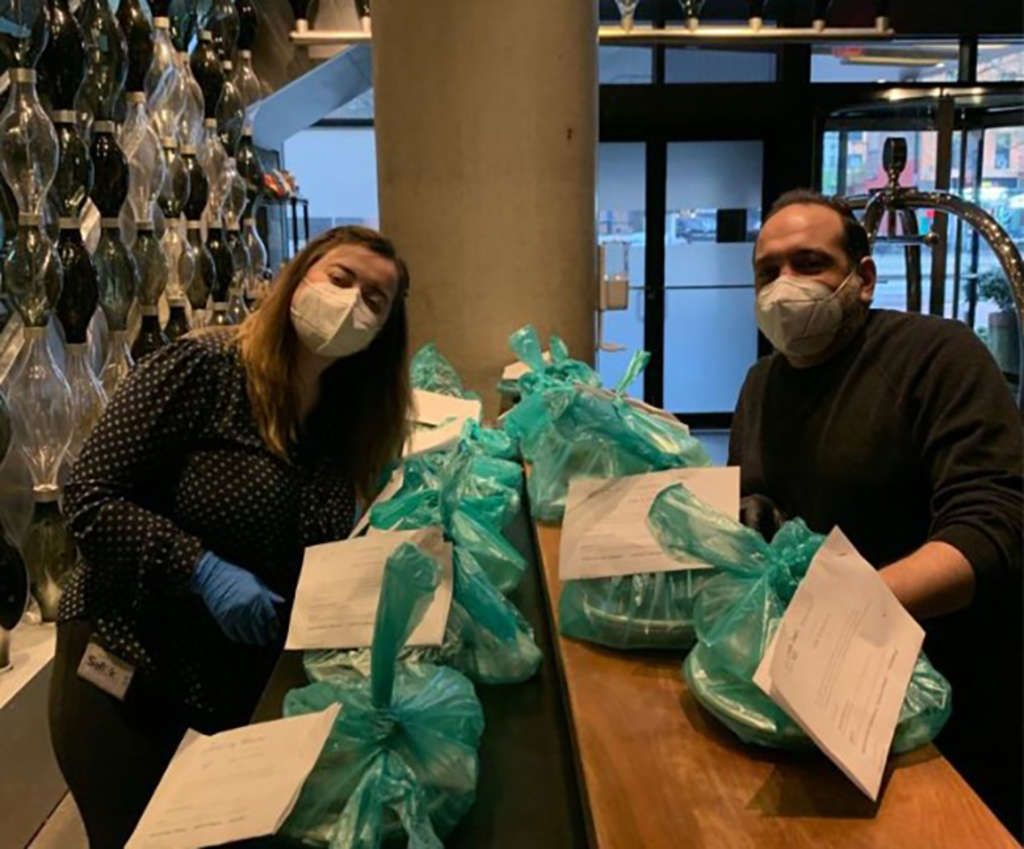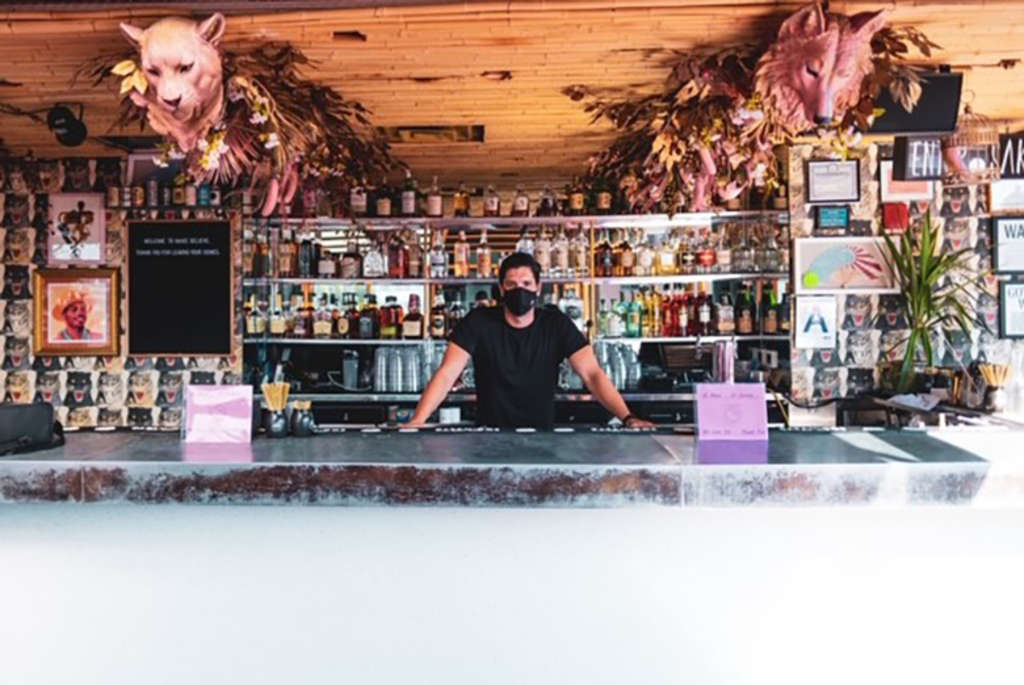How to Stay Safe While Staying Open
by Christopher Horn, on Aug 24, 2020 2:55:36 PM

Deciding to close or remain open during a pandemic can be one of the most difficult decisions a hotel company will ever have to make, especially if multiple assets are involved. Many factors need to be analyzed, including the financial, brand, and human resources sides of the business to determine which action is the most fiscally responsible. At Sixty Hotels, we are "Always Open" to show our customers that we are there for them in good times and bad, no matter what. This is especially challenging considering that our hotels are in the heavily populated tourist destinations of New York City and Los Angeles.
To support our "Always Open" philosophy came the need to adapt and change alongside the coronavirus. This meant developing and adopting innovative best practices that enable our hotels to serve as purposeful places where people can rest and escape in these uncertain times.
Here are six best practices that are helping to keep guests and staff safe at Sixty Hotels:
- There's a Virtual Doctor in the House
As a standard operating procedure, Sixty Hotels provides its guests with access to a house doctor upon request. When the pandemic hit, we reached out to our medical team to conduct a risk assessment of our local hotels. Their focus was not just on guests, but also on identifying ways to protect our valued frontline workers. Anyone who feels ill will be connected virtually with a doctor upon request who can evaluate their symptoms and determine if further medical assistance is needed. - Recently Vacated Rooms are Locked Down
As we learned more about the coronavirus, the room-turn process evolved. During the worst infection rate period, at the recommendation of our medical team, when a guest departs, his or her room is locked down and not touched for 24 hours to prevent airborne particles from escaping the space. After that time passes, a house person wearing personal protective equipment including masks and gloves enters the room with a disinfection kit and power sprayer to thoroughly disinfect the area. Towels and sheets are bagged and sealed and taken to a sealed area in the back of the house where they sit for another 24 hours before they are laundered. Another 24 hours would then pass prior to a Room Attendant entering to facilitate guest room cleaning.
Once rooms are cleaned, room attendants are required to take their carts/tools to the basement and store them in a disinfection area. Once decontaminated, the carts then move to a clean area, where room attendants can retrieve them on their next shift. As workers return the next day, they must undergo personal health screening that include temperature checks. When deemed healthy, they are issued new gloves and masks for the day, retrieve their carts, and proceed to their assigned rooms for cleaning.
Photo: SIXTY Hotels - Self Service is Recommended
Iconic door and bell person positions are a thing of the past. Today, all guests carry their own luggage to their rooms unless they are medically or physically disabled. At check in, guests are separated from staff by plexiglass screens. Housekeeping is not a daily service unless requested. Non-essential high-touch items, such as minibar supplies, robes, slippers, hotel collateral, in-room dining menus, etc., are removed from rooms to limit virus exposure. Amenity and menu requests are delivered via blind drop; there is a knock on the door and items are left in a single use bag or hung on the door handle. In-room dining menus are provided on request. - Grab n Go Replaces Room-service
Traditional plated room-service has been modified to feature single use containers and individually wrapped items to forego washing of dinner plates and glassware. Orders can be placed over the phone or in person at the restaurant. Soon guests can use their smartphones to scan QR codes, upload menus, place orders, and pay for items via mobile wallet or add charges to their room bill. - Associate Safety Devices and Social Distancing in a Must
To protect our people from sexual harassment and social arrest, and also connect them instantly to security or first responders in an emergency situation, we have implemented React Mobile employee safety devices at Sixty Soho, Sixty LES, and Sixty Beverly Hills. With this safety technology, our managers can deploy resources to the exact location of an emergency within seconds of an alert, getting help to where they need it fast. Emergencies come in many forms, and today we are finding new uses for these critical help buttons — or "wellness buttons" as we prefer to call them. We also are following social distancing guidelines by removing extra furniture in break rooms, staggering shifts to eliminate associate overlap, and limiting locker room time. The more distance we can put between associates and guests and workers and each other, the safer our hotels will be. - Connect Active and Furloughed Workers Digitally
To keep our associates apprised of all these new changes and procedures, we have made the Beekeeper employee communication platform a brand standard. This digital tool is proving to be a huge morale booster and a channel where workers can share their ideas about how to make operations better. Whether we are communicating shift schedule updates, acknowledging birthdays and anniversaries, broadcasting local programs that aid first responders, or onboarding and training new hires, this technology is filling a big void in communication and keeping our teams connected and engaged.
Choosing to remain open in potential virus hot spots like New York City and Los Angeles has certainly had its challenges, but each of these best practices has enabled us to overcome the hurdles and meet our guests where they are along their travel journeys. Daily we remind our guests and staff that these new procedures are in place for their safety, and thankfully we haven't run into any obstacles that are preventing us from running our hotels as well — if not better — than they were pre-COVID.

The good news is that transient business is back. Guests are driving from New York, New Jersey, Connecticut, Rhode Island and Massachusetts to get away and forget about COVID for a while. They are enjoying the weather, seeing the sites, and experiencing new sidewalk cafes and outdoor dining venues that have popped up because of the pandemic. All are exploring New York and LA in new, and more affordable ways, and we as hotel operators couldn't be happier to finally see light at the end of a very long, dark tunnel.
What will happen over the next six to twelve months is still unclear. It is still a turbulent time, and we are seeing a renaissance in the purpose of hotels. One thing is for certain, technology is propelling us into the future. Travel will roar back because there is pent-up demand. I am eager to see how this will all play out in the coming months. Hospitality is an industry full of smart, dedicated people. If we follow the best practices that we implement to keep our guests and staff safe, and share our successes will others, we will surely come out stronger than before.
(Article originally published on HospitalityNet.)
About the Author
 Christopher Horn is Vice President of operations for SIXTY Hotels and former General Manager of the brand’s flagship property SIXTY SoHo. A results-oriented leader with more than 15 years of hospitality industry experience, Horn began his hospitality career at Cape Cod’s Premiere Resort, Chatham Bars Inn and moved on to hold operations positions with Starwood Hotels & Resorts and Denihan Hospitality Group.
Christopher Horn is Vice President of operations for SIXTY Hotels and former General Manager of the brand’s flagship property SIXTY SoHo. A results-oriented leader with more than 15 years of hospitality industry experience, Horn began his hospitality career at Cape Cod’s Premiere Resort, Chatham Bars Inn and moved on to hold operations positions with Starwood Hotels & Resorts and Denihan Hospitality Group.

